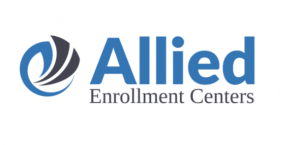
Allied Enrollment Centers Spotlights How To Protect Students from Tax Garnishment Through Strategic Debt Management
Allied Enrollment Centers Spotlights How To Protect Students from Tax Garnishment Through Strategic Debt Management
IRVINE, CA, UNITED STATES, July 18, 2024 /EINPresswire.com/ -- Navigating the complexities of student debt can be challenging, especially with the threat of tax garnishment for defaulted loans. Allied Enrollment Centers emerges as a critical ally in this financial struggle, offering expert guidance to help students avoid the severe consequences of tax garnishment. To deal with this problem, Allied Enrollment Centers focuses on federal forgiveness programs, federal student loan consolidation, and income-driven repayment plans.
Federal Forgiveness Programs
One of the most effective strategies that Allied Enrollment Centers employs to help students avoid tax garnishment is through federal forgiveness programs. These programs are designed to forgive a portion or all of a student's loan debt under specific conditions, thereby eliminating the debt that could otherwise lead to garnishment. According to Allied Enrollment Centers, students may qualify for various forgiveness programs based on their career choices, such as Public Service Loan Forgiveness (PSLF) and Teacher Loan Forgiveness. These programs target individuals who work in qualifying public service or educational roles for a set period, typically ten years, for PSLF.
Allied Enrollment Centers assists students in determining their eligibility for these programs and guides them through the application process. By enrolling in a federal forgiveness program, students work towards eliminating their debt and protect themselves from potential garnishment actions. This proactive approach ensures that students can focus on their careers without worrying about financial repercussions from their student loans.
Federal Student Loan Consolidation
Another pivotal service provided by Allied Enrollment Centers is federal student loan consolidation. Consolidating multiple federal student loans into a single Direct Consolidation Loan can simplify repayment and extend the repayment period, making monthly payments more manageable. According to Allied Enrollment Centers, this strategy is particularly beneficial for students facing the risk of default and subsequent tax garnishment.
Federal student loan consolidation combines all existing federal loans into one, often resulting in a lower monthly payment. This is because the repayment period can be extended up to 30 years, depending on the total loan balance. Reducing the monthly payment burden makes students less likely to default on their loans. Additionally, a single consolidated loan simplifies the repayment process, reducing the likelihood of missed payments and the resulting penalties that could lead to garnishment.
Moreover, consolidating loans can also restore eligibility for federal benefits, such as deferment, forbearance, and income-driven repayment plans, which might have been lost due to default. Allied Enrollment Centers works closely with students to navigate the consolidation process, ensuring that they understand the terms and benefits and helping them make informed decisions to avoid garnishment.
Income-Driven Repayment Plans
Income-driven repayment (IDR) plans are another vital tool in preventing tax garnishment, and Allied Enrollment Centers excels in helping students enroll in these plans. IDR plans to adjust monthly loan payments based on the borrower's income and family size, ensuring that payments are affordable and sustainable. There are several types of IDR plans, including Income-Based Repayment (IBR), Pay As You Earn (PAYE), and Saving On A Valuable Eduction (SAVE).
Allied Enrollment Centers says these plans can reduce monthly payments to as low as 5-10% of discretionary income.
Sometimes, the payment could be as low as $0 for borrowers with very low income. By aligning loan payments with income levels, IDR plans significantly reduce the risk of default and the subsequent threat of tax garnishment. Additionally, after 20-25 years of qualifying payments, any remaining loan balance under an IDR plan may be forgiven, offering a long-term solution to student debt.
Allied Enrollment Centers provides comprehensive support in selecting the most appropriate IDR plan based on individual circumstances. They assist with the application process, ensure timely income recertification, and help students understand their rights and responsibilities under these plans. This personalized approach ensures students can manage their loans effectively, avoid default, and protect themselves from garnishment.
Overall, Allied Enrollment Centers is dedicated to protecting students from the severe consequences of tax garnishment through strategic debt management solutions. By leveraging federal forgiveness programs, facilitating student loan consolidation, and enrolling students in income-driven repayment plans, they offer a lifeline to students struggling with student debt. Their expert guidance and personalized support empower students to take control of their financial future, ensuring they can pursue their careers and personal goals without the constant threat of financial distress.
Jon Smith
News Live
email us here
EIN Presswire does not exercise editorial control over third-party content provided, uploaded, published, or distributed by users of EIN Presswire. We are a distributor, not a publisher, of 3rd party content. Such content may contain the views, opinions, statements, offers, and other material of the respective users, suppliers, participants, or authors.


